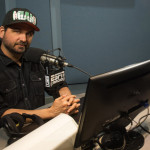In light of the recent news of Colin Cowherd leaving ESPN, I thought it’d be a good time to take a look at the challenges of replacing a major brand name, why personalities leave and how the process works.
The reality in today’s media world is that any great talent who works for a brand and delivers results is going to be desired by another company at some point. While a GM, PD and Host may start off a relationship with the intent of enjoying a career lasting relationship together, the truth is that people who perform, like to be desired, and those positive feelings get tested when other competitors enter the equation and start throwing larger dollars, more flexibility and more control their way.
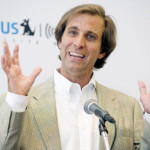
If you grew up on ESPN and enjoyed watching Dan Patrick and Keith Olbermann own SportsCenter and make it must-see sports television, you’d believe they’d be there forever. Well not only did Keith leave to work for Fox Sports, TBS, MSNBC and a few other groups but Dan did as well. Today Dan has rebuilt his brand through multiple outlets. He has a TV deal for the radio show with DirecTV, a radio deal with Premiere Radio Networks, a TV anchor position for NBC’s Sunday Night Football, he appears frequently in Aadm Sandler films and he has a content arrangement with Sports Illustrated.
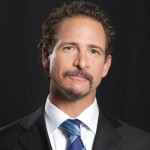
In all three cases, the talent were very successful, built a large following with sports fans and other media companies took notice and were prepared to compete to lure them away. When each of these personalities were given more money, more flexibility and more control, they exited the places where they had built their brand name and value. And you can’t blame any of them because most people would do the exact same thing.
Keep in mind, this isn’t only happening on the network levels or in market #1. This happens in many other cities as well. Nobody knows that reality more than myself as I had to go through a number of changes with 95.7 The Game in San Francisco plus a few in St. Louis too.
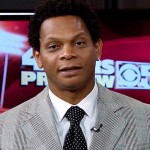
However, one year into the relationship Eric was pursued by the NFL Network and they were offering morning drive, major exposure across the country and a lot of money. Given Eric’s background as a former NFL player this made all the sense in the world for him to explore and while it personally sucked for myself, Brandon and our company, if any of us had been in that same situation we’d have done the same exact thing and left. While the intent wasn’t to leave, the opportunity was too great for E.D to pass up.
One thing I’ve learned as a manager is that as hard as it may be at the moment to see the solution and while it may be personally exhausting dealing with the backlash of losing a popular personality from a passionate audience, eventually the show does go on, another great personality joins the team and fills the void, and you can still have success.

Once I know a personality has made a choice to move on and I know the company has done everything it can to retain them, it’s on to the next plan. I don’t have time to waste and my employer, our clients and our audience are expecting a solution. I’ll normally take a few hours to clear my head and let the emotions of the situation subside, think about what could be potentially exciting and great if we could pull it off, start compiling a list of potential targets, and then begin making phone calls and sending emails to see what’s possible.

Unfortunately I had to go through that same process a couple of other times over the next two years as a number of high profile personalities were either sought out for their abilities by larger networks or they wanted to explore a change in their careers and while we got through it and put the brand in a strong position, it was very challenging and not a lot of fun.
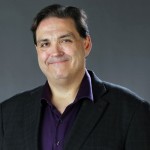
If there’s one positive going through a process like this, it’s that it really does test your resolve and allow you to find out what you’re made of. I look at it as a personal challenge and opportunity to do something big. Word of advice to those in hiring positions – if you don’t like pressure, do something else. The process will cause you to lose sleep, tear your insides apart and you’ll have every set of eyes inside and outside of your building watching you and waiting to see how you adapt. One sign of weakness and you can lose the confidence of the room. If you can’t perform with your back to the wall there are many other jobs with less stress.

That makes for a perfect segway because I don’t know of any ballsier of a move than replacing Tony Kornheiser at the ESPN Radio network with an unknown commodity named Colin Cowherd but that’s what Bruce Gilbert did in 2006 and here we are ten years later talking about Colin’s upcoming departure and how it’ll be a major blow to ESPN.

Does it suck to lose Colin? Yes. He’s a dynamite talent and one of the industry’s best. Does it make you question what’s happening at the four letter network when you see Scott Van Pelt and Colin both leave radio shows within a few months in addition to the television staff losing Bill Simmons and Keith Olbermann? Yes. But they’re still the largest sports media company in the world and they’re always going to have talent options to consider so do I expect them to come out of this and make a solid hire? I do.
That doesn’t mean the show will be as good as Colin’s or a good fit for the markets where his show aired but they will have options. For example, internally they have Dan Le Batard who could be moved up, they’ve got Max Kellerman and Marcellus Wiley in Los Angeles who they could consider and they’ve got every other sports broadcaster on the planet looking at Colin’s vacancy as the launching pad for their career much like Colin saw it that way when he replaced Kornheiser.
What I do think is a bigger concern for ESPN at this time isn’t whether they’ll fill Colin’s void. It’s how do they keep their revenue stable when advertisers are losing the high profile personality brands they’ve associated their products with. Usually when a major change is made, clients take a wait and see approach or invest less during the interim period.
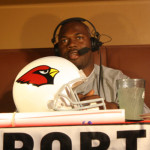
The other factor that plays into this is how does Colin’s replacement fit the market where the show is being cleared? One of the positives that Colin brought was that he had a strong west coast style which was an alternative to the network’s east coast heavy presentation. If his replacement though is heavily invested in Yankees-Red Sox talk or things that don’t have appeal beyond the east coast, and you’re a station clearing the show in California, Oregon, Colorado, Arizona or Washington, that may cause stations to battle the network and force change with their programming options.
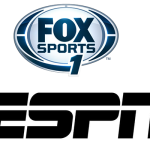
Those are the types of decisions that keep programmers and executives up at night and while they’re not fun or easy to tackle, the great ones find a way to navigate through the difficulty. Nobody has done that better in sports radio circles than Mark Chernoff who had to overcome losing Don Imus and Chris Russo at WFAN and both times wound up with higher performing programs (Boomer & Carton and Mike Francesa). That’s the task that awaits ESPN and it’ll be interesting to see how they respond since this is unfamiliar territory.


Jason Barrett is the President and Founder of Barrett Media since the company was created in September 2015. Prior to its arrival, JB served as a sports radio programmer, launching brands such as 95.7 The Game in San Francisco, and 101 ESPN in St. Louis. He also spent time programming SportsTalk 950 in Philadelphia, 590 The Fan KFNS in St. Louis, and ESPN 1340/1390 in Poughkeepsie, NY. Jason also worked on-air and behind the scenes in local radio at 101.5 WPDH, WTBQ 1110AM, and WPYX 106.5. He also spent two years on the national stage, producing radio shows for ESPN Radio in Bristol, CT. Among them included the Dan Patrick Show, and GameNight.
You can find JB on Twitter @SportsRadioPD. He’s also reachable by email at Jason@BarrettMedia.com.




